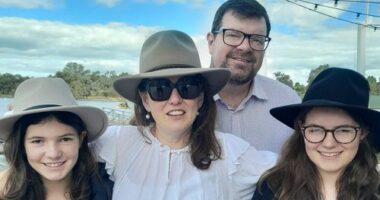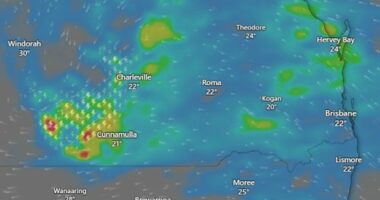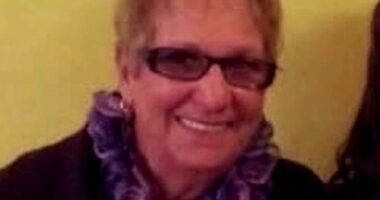Share this @internewscast.com
The temperature is hot — 93C, but far less hot than a flame cremation, which reaches 800 to 1,000C.
“It’s easy when we pop someone underground to go, ‘That’s gone now,'” he said.

Co-directors Brendan Cooper and Luke Cripps brought water cremation to Tasmania in 2023. They run the only facility of its kind in Tasmania. Source: SBS
“But what happens beyond that point is alkaline hydrolysis. It just takes a really long time.”
The residual liquid, stripped of DNA and RNA but rich in salts and sugars, can be repurposed — used, he says, to help nourish overfarmed parts of Tasmania.

Brandon Cooper pouring out the potassium hydroxide for the water cremation to make the solution alkaline. Source: SBS
But it’s not only about science or sustainability. Again and again, families return to the same word when explaining their choice: gentle. The feeling, Cripps says, of a softer goodbye.
“That’s really the primary concern from all of the families that we work with. Are you somebody who’s going to take care of the person that I love? And are you going to treat them gently? And there’s an association for them with water that is gentle,” he said.
Mushroom suits, buried at sea and human composting
However, this figure probably includes a small percentage of water cremations, as the numbers are lumped together, says Professor Michael Arnold of the DeathTech research team at the university.

The mineral bone remains that are left after a water cremation is completed, before they are ground into ash. Source: SBS
In Australia, a growing number of people are choosing a natural burial, which is allowed in some Australian states. In designated parks, you can be laid to rest in a simple shroud or biodegradable clothing. No chemicals to embalm the body. No polished casket. Straight into the ground.
Instead of a headstone, there’s a communal marker that holds the names of everyone resting beneath the soil.
Some Australians are exploring the idea of a “mushroom suit”. The suit is embedded with mushroom spores and microbes that aid decomposition, neutralise toxins, and return nutrients to the soil. Cemeteries and Crematoria NSW include it on their list of eco-friendly options, but the suits are still rare and not widely available.

In Kurweeton Cemetery in Victoria, people are being buried upright in their natural burial. Credit: Upright Burials
Beyond that, some Australians are starting to ask: what about composting our bodies?
If your donation is accepted, universities or hospitals usually cover the cost of cremation afterwards, though not burial. It’s worth knowing that your family might not get your remains back for several years — and in some cases, not at all — depending on the program. Each place has its own rules, so it’s a good idea to look into the details ahead of time.

Body composting is gaining popularity in the US, with at least 10 states allowing the process — and others set to follow. Source: Getty / Hyoung Chang
Others are choosing a cardboard box, which is more cost-friendly and gives loved ones a place to write a message.
Australia is about to enter ‘peak death’
Currently, Australia’s funeral industry is facing challenges on multiple fronts. Earlier this year, a 113-hectare site in Sydney’s southwest opened to address the shortage of burial plots in the city’s long-standing cemeteries, which are nearing capacity.

This may be what a traditional cemetery looks like but as space runs out for burials within Australian cemeteries, we may have to re-think what a cemetery is. Source: Getty / Cultura Exclusive/Lost Horizon
Arnold from the DeathTech research team at the University of Melbourne, who says Melbourne is facing the same problem, says being buried itself is not a problem.
“The challenge for the industry is meeting competing demands in the market.”
If you have not grown up and lived and have a connection to the community, do you want to travel? Do you want your family to drive all that distance to the new cemetery?
Professor Michael Arnold, DeathTech research team at the University of Melbourne
In 2019, burial costs were estimated at $9,055, compared to $11,039 in 2023. Cremations cost an estimated $6,334 in 2019, whereas the estimate for 2023 is $8,045.
The problem with new technologies
Cripps from the water crematorium in Tasmania said the biggest hurdle to getting the facility running was proving that the liquid posed no risk.
“You only get one chance. It cannot go wrong. If something goes wrong at a funeral, the funeral director can’t turn to everybody and say, ‘okay, everybody. Come back tomorrow and we’ll start again.'”
“And that’s all it is — another option.”











